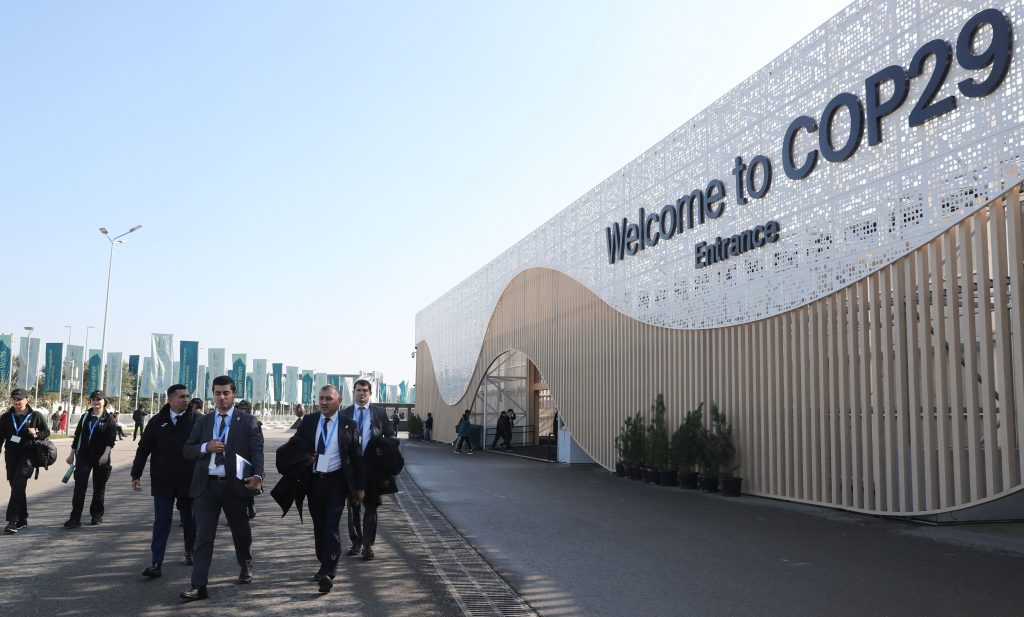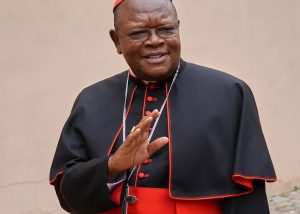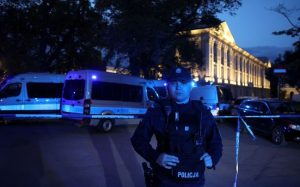World leaders gather at UN climate conference amid notable absences
3 min read
As the COP29 climate conference opens in Baku, Azerbaijan, a notable absence of key global leaders has raised concerns among climate activists and delegates. Leaders from some of the world’s largest and most influential countries, including China, the United States, India, Germany, and France, are not in attendance, prompting questions about the level of commitment to addressing the ongoing climate crisis. While this absence has been seen as a troubling sign of disengagement from major emitters, many argue that the urgency of the climate emergency demands continued global action, with or without the presence of these prominent figures.
Shiva Gounden, a climate advocate from the Pacific region, echoed the sentiments of many in attendance. “A lot of people across the world have very little trust in the United Nations system, and big leaders from larger countries not being here doesn’t give a good signal,” Gounden remarked. “But this is the only multilateral process that works on a consensus among 197 countries—or 198, if the U.S. doesn’t withdraw. The world needs to unite to find solutions to fight the climate crisis. Climate change doesn’t wait for one leader or one country; it impacts communities like mine in the Pacific.”
While the absence of these key figures casts a shadow over the conference, the event is still expected to provide a crucial platform for smaller nations, particularly those most vulnerable to the effects of climate change. Leaders from small island nations and over a dozen African countries will be present at the conference, determined to push for stronger commitments to global climate goals. Many of these nations face the most severe risks from rising sea levels, extreme weather events, and other climate impacts, making their voices critical in shaping the international response to the climate crisis.
One of the key issues that these leaders are expected to focus on is the need for adaptation funding. Countries in the Pacific and African nations are already experiencing the devastating impacts of climate change, such as droughts, floods, and the displacement of entire communities. In many cases, these nations are ill-equipped to cope with such challenges due to limited financial resources. As a result, they are calling for increased international support to help them build resilience and adapt to the changing climate. In addition to funding, leaders will also push for more ambitious emissions reduction commitments from wealthier nations, which have historically been the largest contributors to global greenhouse gas emissions.
Over the course of two days, the World Leaders’ Summit at COP29 will offer these smaller, more vulnerable countries a chance to advocate for their interests on the global stage. The conference will also provide an opportunity for these nations to highlight their efforts in combating climate change, as well as their need for a fairer and more equitable approach to global climate action. For many of these countries, the conference represents one of the few forums where they can directly engage with the international community and hold larger nations accountable for their role in the climate crisis.
While the absence of key leaders from major emitting countries may be seen as a setback, the conference underscores the growing recognition that climate change is a global problem that requires collective action. Even without the participation of some of the world’s largest polluters, COP29 will continue to serve as a vital space for collaboration, advocacy, and negotiation. The conference’s success will ultimately depend on the willingness of all nations to engage in meaningful dialogue and take concrete steps to address the climate crisis.
Despite the challenges, the ongoing climate negotiations at COP29 serve as a reminder that the fight against climate change is far from over. With the future of the planet at stake, it is imperative that all countries—large or small—continue to work together in the pursuit of a sustainable, resilient, and equitable future for all. While the absence of major leaders may be disappointing, the presence of vulnerable nations is a powerful signal that climate action cannot afford to wait, and the world must unite to confront the urgent challenge ahead.








